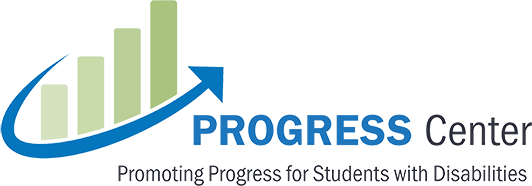What do you need to know to develop and implement high-quality instructional programming to ensure that students with disabilities have access to free appropriate public education (FAPE)? What resources are available to support you? Join the PROGRESS Center for Prepping for PROGRESS 2024: Better Together! Collectively Promoting Progress for Students with Disabilities on July 29–30, 2024 to access information, resources, tools, and strategies to support you as you start the new school year!
This collection of self-paced courses provides highlight evidence-based, high-leverage practices that research has shown support implementation of high-quality instructional programming for students with and at risk for disabilities regardless of their identified disability category or grade span. These practices were identified through an extensive, systematic meta-analysis* of the high-leverage practices for students with disabilities.
Did the 2017 Endrew F. Supreme Court decision impact progress indicators for students with disabilities? Several data gathering activities conducted through the PROGRESS Center suggest it depends on the context. During the webinar held on November 30, 2023, PROGRESS Center Director Dr. Tessie Bailey and PROGRESS Center Advisors Dr. Mitch Yell and Dr. Perry Zirkel shared findings from judicial rulings and professional recommendations as well as potential implications for the field.
This interactive course from the PROGRESS Center is part of a series covering components of the individualized education program (IEP). The course explains the Individuals with Disabilities Education Act (IDEA) requirements for the statement of services and aids and the critical role of the statement of services and aids in the development of a high-quality IEP. Those who enroll in this interactive course will be able to do the following:
This collection of self-paced courses covers the legal foundations of laws supporting students with disabilities. The collection includes courses that explain the difference between civil rights and funding laws, different laws impacting students with disabilities including the Individuals with Disabilities Education Act (IDEA), the relationship between state and federal laws, primary sources of the law in the United States, the impact of the role and levels of the adjudicative source of law, the history of IDEA, the major parts of IDEA, and more.
This course focuses on teaching social behavior. It is part of a series covering instructional practices. These practices were identified through an extensive, systematic meta-analysis* of the high-leverage practices for students with disabilities. Those who enroll in this interactive course will be able to do the following:
This collection of self-paced courses provides foundational information about the individualized education program (IEP), describes the role of the IEP in developing and implementing high-quality educational programming that meets procedural, substantive, and implementation requirements and ensures that students with disabilities have access to free appropriate public education in the least restrictive environment as outlined by IDEA, highlights specific components of the IEP (e.g., goals, present levels statement, services and aids). Specific courses focus on critical parts of the IEP (e.
On September 12, 2023 the PROGRESS Center hosted Special Educator Preparation: Promising Strategies to Promote Recruitment and Retention. The event focused on building capacity with those who support pre-service and in-service educators to develop and implement high-quality educational programming for students with disabilities. The goal of the event was to share current practices, barriers, and potential solutions to resolving challenges around special education teacher preparation and promoting progress for students with disabilities learned through research and practice.
This course is part of a series covering the legal foundations of laws supporting students with disabilities. Those who enroll in this interactive course will be able to do the following:
What do you need to know to ensure you can develop and implement high-quality educational programming that ensures students with disabilities have access to a free appropriate public education (FAPE), which allows them to make progress and meet challenging goals, consistent with the U.S. Supreme Court’s decision in Endrew F. v. Douglas County School District (2017)? How can we improve the IEPs we develop? How can we better prepare educators to promote progress for students with disabilities? What resources are available to support you?
